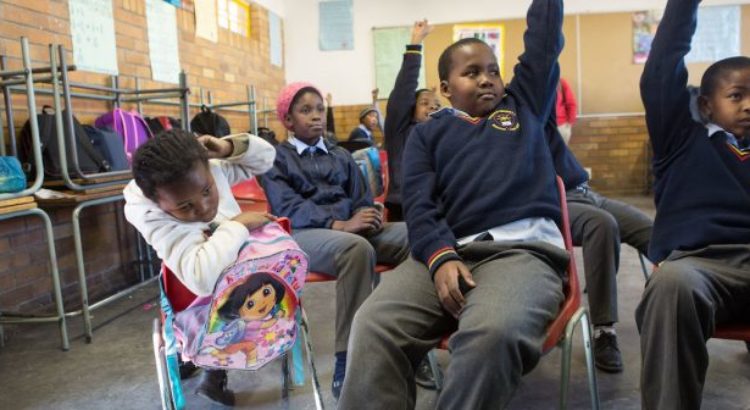Africa/ South Africa/ 12.08.2019/ Source: www.borgenmagazine.com.
ince 1989, UNICEF has recognized the right of every child to equal and quality education. However, many nations fall behind in having an education system that supports children with disabilities or those who come from poorer backgrounds. South Africa is no different. Only half of those who enter first grade make it the full 12. Despite the fact that inclusive education in South Africa has been a government priority since the early 2000s, little progress has been made. Fortunately, organizations are stepping in to create initiatives that have a positive impact on hundreds of children.
Children with Disabilities
A recent report by Human Rights Watch accused South Africa of failing to provide inclusive education for children with disabilities. These children often do not have access to the programs and supplies that would give them an equal opportunity to succeed at school. Approximately 600,000 South African children with disabilities are not in school, in part because of the fees required. While many children are not required to pay school fees, this is not extended to children with disabilities and they are often charged an additional fee.
Additionally, rather than creating inclusive schools, separate schools for children with disabilities were created. Many of these special schools do not provide the same level of education that supports the holistic development of cognitive skills of these children. Therefore, they ultimately fail to prepare these students for employment.
Steps to Improve Inclusive Education
The government has taken some steps to improve this, such as adopting a national curriculum for South African sign language, distributing teaching materials in Braille and even declaring that public schools for children with disabilities would soon abolish fees, but there’s still a long way to go before inclusive education in South Africa meets international standards. There are organizations and projects that are trying to improve things a little faster.
- Inclusive Education in South Africa (IESA): IESA has been working since 1995 to promote and support inclusive education practices. Its efforts are aimed at educators and professionals, giving them theknowledge and tools necessary to provide high-quality education for all students, regardless of disability or background. One of IESA’s methods is a two-day training for early childhood educators and caregivers on inclusive education. The training teaches them how to accommodate children with disabilities in their centers.
- The Workbook Project: In 2012, the Department of Basic Education and the EU’s Primary Education Sector Policy Support Programme began a workbook project to supply literacy and numeracy workbooks to every child in school. This project is a response to low literacy and numeracy rates, fuelled by a lack of classroom resources, including workbooks. In an effort to be inclusive, workbooks in braille and large print were created and distributed to students who needed them. However, there is still a need to further adapt the workbooks for a wider variety of disabilities.
- Focusing on Vocational Skills: While there is still a long way to go, the Department of Basic Education has recognized the need for job training and made an effort to make it more available for children with disabilities. Kempton Park Panorama School’s vocational training program provides an example for other schools seeking to provide inclusive education in South Africa. The school works with local mechanical workshops, nursery schools and bakeries to provide students with workplace skills development. For students with disabilities, or those with little interest in receiving higher education, finding a job is often crucial. There is also a shortage of students going into vocational education programs, so making these programs more accessible to students can help fill an employment gap and ensure people with disabilities can make a living for themselves.
- Full-Service Schools: As of 2017, South Africa had 900 full-service schools. These schools welcome all students, including those who are disabled and meet the differing educational needs of all students. One of these schools is Isiziba Primary School in Gauteng’s Ekhuruleni North District. Of the school’s 1,309 students, 108 have a learning disability. All 35 teachers have received training on how to identify and support those students. The school provides a model for inclusive education that all schools should be striving to meet.
Moving Forward
UNICEF is currently preparing a survey on inclusive education to assess whether standards are being met in countries around the world, which could help South Africa and other nations improve their inclusive education programs. Current initiatives need to be expanded to increase their sensitivity to and accommodation for children with disabilities.
Awareness of the impact that these schools can have on the children needs to be spread if inclusive education in South Africa is to be achieved across the nation. Furthermore, accurate data also needs to be released about the educational needs of children with disabilities. With that data, the government and other organizations can make smart decisions about how to use their funding and resources to best help the most children in need.
Source of the notice: https://www.borgenmagazine.com/improving-inclusive-education-in-south-africa/







 Users Today : 35
Users Today : 35 Total Users : 35460052
Total Users : 35460052 Views Today : 50
Views Today : 50 Total views : 3418681
Total views : 3418681